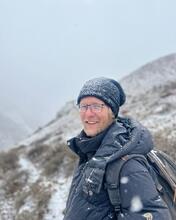
Across the highest mountains on Earth, people are on the move. Often considered a bellwether for the impacts of climate change, the Himalaya are a vertiginous region – culturally, linguistically, agroecologically, and ritually diverse – where landscape and political economic conditions have for centuries required and foreclosed different kinds of mobility. Never static, over the past 60 years, Himalayan people and their ecologies have witnessed and shaped processes of tremendous change – bordering and state making processes on both sides of the mountains, ambiguous outcomes of a dizzying array of economic development schemes, infrastructure projects, war and state violence, environmental conservation, and climate change among them. Corresponding shifts in agropastoral production, exchange, consumption and social reproduction story land, bodies, and relations, (re)making values of all kinds – use, exchange, truth, moral, etc. – while forging and parsing relationships within and across many margins – agroecological, linguistic, familial, political, and economic. Afterlives of the grain-salt trade take people throughout the region along different routes, forging different relations, and producing different values in changing landscapes by way of different kinds of work and ritual practices.
My doctoral research is guided by the question: how, through changing practices of mobility, do people in different linguistic and geographical communities in NW Nepal make and remake agroecological systems between the collapse of ‘traditional livelihoods' on the one hand and climate change on the other? In this larger project, I hope to take up practices and processes including kinship, migrant labor, agriculture, the grain trade, and travel, with attention to ways that people martial and mistake old and new forms of mobility, magic, and marginality to create diverse forms of value, to make places and relations, and to iteratively weave together agrarian futures in a world always coming apart. This summer, I ask: a.) how do people inherit, experience, create, and reshape kin relations? b.) How are the form, content, and prospects of social institutions like netsang – literally “nesting places”, fictive kinships that have long scaffolded seasonal, short-distance migration in NW Nepal – reshaped by new and expanding forms of domestic and increasingly long-term international migration? c.) how do kin relations shape how people fill their plates?